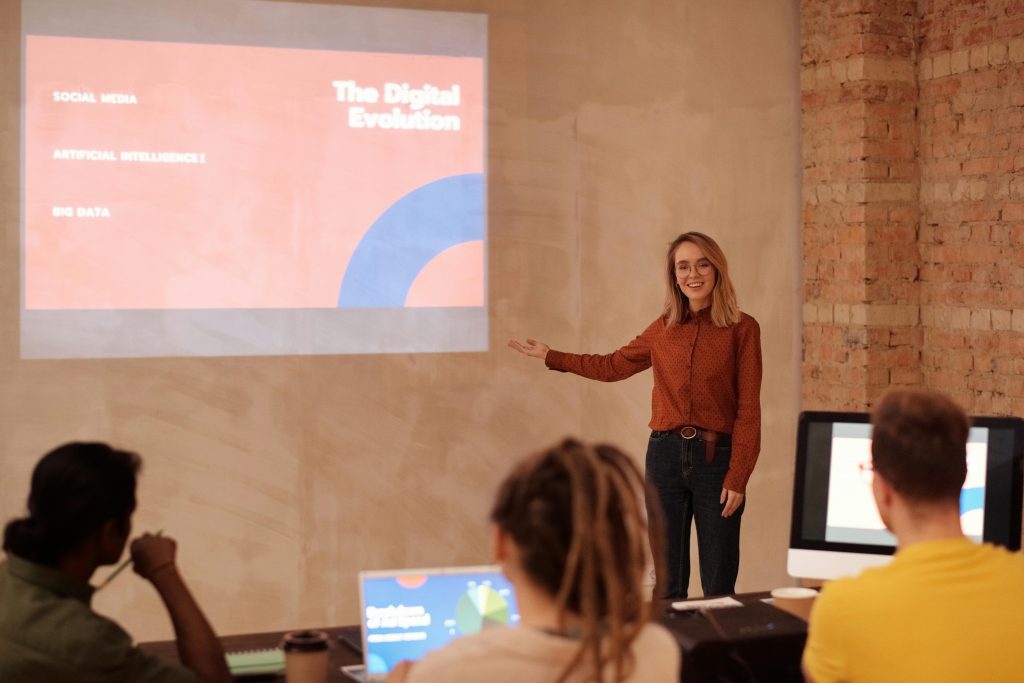Introduction
In today’s saturated digital ecosystem, reaching “everyone” with a generic message no longer cuts it. Customers expect brands to understand them, speak their language, and deliver tailored experiences. That’s where audience segmentation comes in. By slicing your total market into smaller, shared-characteristic groups—based on demographics, behavior, psychographics, geography, and more—you can craft highly relevant messaging, increase engagement, and optimize marketing ROI. In this comprehensive, in-depth guide, we’ll explore what audience segmentation is, why it’s critical, how to implement it end-to-end, and how to leverage advanced techniques and real-world case studies to supercharge your growth strategy.

What Is Audience Segmentation?
Audience segmentation is the strategic practice of dividing a broad market into distinct subsets of consumers who share common attributes, needs, or behaviors. Rather than broadcasting a one-size-fits-all message, segmentation empowers you to:
- Personalize communication with relevant language, visuals, and offers
- Maximize budget efficiency by investing in high-potential groups
- Improve product development through targeted feature prioritization
- Boost customer experience via tailored interactions at every touchpoint
The 5 Pillars of Segmentation
- Demographic
- Attributes: Age, gender, income, education, occupation, family status
- Use Case: A university promoting postgraduate programs to professionals aged 25–40 with three to five years of work experience.
- Geographic
- Attributes: Country, state, city, urban vs. rural, climate, local culture
- Use Case: A surfwear brand adjusting its product mix seasonally—wet suits in California winter vs. boardshorts in Florida.
- Psychographic
- Attributes: Values, lifestyle, interests, personality, social status
- Use Case: An organic food company targeting health-conscious shoppers who value sustainability and ethical sourcing.
- Behavioral
- Attributes: Purchase history, usage frequency, brand loyalty, engagement triggers, lifecycle stage
- Use Case: A SaaS provider offering churn-prevention discounts to customers whose usage has dipped below 30% in the past month.
- Technographic (Emerging)
- Attributes: Device usage, software preferences, tech adoption rates
- Use Case: An app developer segmenting based on whether users are early adopters vs. late majority to adjust feature rollouts.
Why Audience Segmentation Matters

1. Dramatically Higher Engagement
Generic messages get ignored. Personalized emails deliver 6× higher transaction rates and 14% higher open rates³. When you address specific interests or challenges, your audience listens.
2. Superior Conversion Rates
By aligning your offer with a segment’s readiness to buy, you remove friction—whether it’s a “Welcome” coupon for first-time buyers or an upsell for power users already at 80% capacity.
3. Enhanced Customer Loyalty
Tailored loyalty programs—recognizing “VIP” spenders with exclusive perks—boost retention by up to 50%⁴. Customers who feel understood become brand advocates.
4. Optimized Spend and ROI
Rather than spreading budget thinly, you invest strategically in the segments that promise the best returns, lowering cost-per-acquisition (CPA) and improving lifetime value (LTV).
Deep Dive: Benefits & Real-World Examples
Personalized Customer Journeys
- Email Marketing: htmlCopy
<!-- Example dynamic content block --> <div> {% if subscriber.segment == 'Eco-Conscious' %} <h2>Save the Planet and Your Wallet</h2> <p>Our new refillable cleaning pods eliminate plastic waste.</p> {% else %} <h2>Exclusive Offer Just for You!</h2> <p>Enjoy 20% off on our bestselling home essentials.</p> {% endif %} </div> - Web Personalization: Display product recommendations based on browsing history—e.g., surfboards for users in coastal cities, winter gear for mountain-region visitors.

Case Study:
Company: Outdoor Retailer X
Challenge: Low remarketing ROI.
Solution: Segmented past purchasers by activity type—hiking, camping, climbing—and served tailored ad creatives.
Result: 35% uplift in remarketing conversion rates and 28% decrease in CPA.
Data-Driven Product Innovation
- Gap Analysis: Segment surveys reveal 60% of customers want eco-friendly packaging, prompting a shift that increased NPS by 12 points.
- Feature Prioritization: Tech-savvy segments justify the development of advanced analytics dashboards, while novice users receive simplified interfaces.
Smarter Advertising & Media Buying
- Custom Audiences: Facebook Lookalike Audiences built on your highest-LTV segment yield 2× better ROI than broad targeting.
- Programmatic Bidding: Bid shading for impressions viewed by top-spend segments ensures budget flows where it matters.
Step-by-Step Implementation Guide
1. Audit & Aggregate Data
- Internal Systems: CRM (Salesforce, HubSpot), email platforms, Google Analytics, ecommerce platforms.
- External Insights: Third-party data providers (e.g., Nielsen, Experian), social listening (Brandwatch), competitive benchmarks.

Pro Tip: Build a unified Customer Data Platform (CDP) to break down silos and consolidate real-time profiles.
2. Select High-Impact Variables
- Avoid segment overload—focus initially on 3–5 segments that align with strategic goals.
- Use cross-criteria segments (e.g., “High-income urban millennials who have purchased in the last 90 days” for a luxury travel offer).
3. Craft Detailed Buyer Personas
| Persona Name | Demographics | Psychographics | Pain Points | Preferred Channels |
|---|---|---|---|---|
| Budget-Conscious Ben | Age 22–30, single, entry-level job | Values savings, hunts deals online | Budget constraints, lack of time | Email, Instagram Stories |
| Luxury-Lover Laura | Age 35–50, dual-income household | Seeks exclusive experiences | Overwhelmed by choice | LinkedIn, Pinterest |
| Eco-Minded Emma | Age 25–40, urban dweller | Passionate about sustainability | Worries about environmental impact | Facebook, Blogs |
4. Tailor & Orchestrate Campaigns
- Email Drip Funnels:
- New Visitor: Welcome series + brand story.
- Engaged Subscriber: Educational content + social proof.
- Ready-to-Buy: Discount offers + urgency messaging.
- Content Marketing:
- Blog Posts: “10 Ways Eco-Friendly Packaging Saves You Money” for Eco-Minded Emma.
- Whitepapers: “The ROI of AI in Financial Services” for tech-forward executives.
- Paid Media:
- LinkedIn Ads: Target Luxury-Lover Laura with a high-end webinar invite.
- Google Display: Retarget Budget-Conscious Ben with dynamic product ads for sale items.
5. Automate & Personalize
Use tools like Marketo, Pardot, or ActiveCampaign to:
- Dynamically update segment membership based on behavior.
- Trigger multi-channel journeys—email, SMS, in-app messaging—tailored to each persona.
6. Measure & Optimize
- Key KPIs by Segment:
- Open Rate (Email)
- CTR (Ads & Email)
- Conversion Rate
- Average Order Value (AOV)
- Customer Lifetime Value (CLV)
- Review Cadence:
- Monthly Reports: Quick wins and immediate tweaks.
- Quarterly Strategy Sessions: Revisit segment definitions, adjust budgets, test new hypotheses.
Advanced Segmentation Techniques
Predictive Analytics & Machine Learning
- Churn Prediction Models: Identify at-risk customers and preemptively offer retention incentives.
- Propensity Scoring: Score leads by likelihood to convert, focusing sales efforts accordingly.

Micro-Segmentation
- Drill into highly specific cohorts—e.g., “Repeat purchasers of Product X who opened last month’s newsletter but didn’t click the CTA”—for hyper-personalized re-engagement.
Lifecycle-Based Segmentation
| Lifecycle Stage | Goal | Tactics |
|---|---|---|
| New Leads | Nurture interest | Educational drip, social proof, low-barrier offers |
| First-Time Buyers | Encourage repeat purchase | “Thank you” emails, cross-sell suggestions, discounts |
| Loyal Customers | Reward advocacy | VIP programs, referral incentives, early access |
| Lapsed Customers | Win back | Personalized reactivation offers, feedback surveys |
Common Pitfalls & How to Avoid Them
Future Trends in Audience Segmentation
- Privacy-First Segmentation: With cookieless environments, first-party data and contextual cues will gain prominence.
- AI-Powered Insights: Generative AI will uncover hidden patterns and suggest new segment opportunities.
- Omnichannel Orchestration: Seamless personalization across voice assistants, in-store kiosks, and connected devices.
- Emotional Segmentation: Leveraging sentiment analysis to target based on real-time mood and social discourse.

Conclusion
Audience segmentation transforms scattershot marketing into a precision science. By leveraging demographic, geographic, psychographic, behavioral, and technographic insights—and layering in predictive analytics—you can deliver the right message to the right person at the right time. From boosting engagement and conversions to improving product development and optimizing ad spend, segmentation underpins every high-performance marketing strategy. Start with a data audit, define a handful of strategic segments, craft detailed personas, and activate personalized campaigns. Continuously measure, refine, and embrace advanced techniques like micro-segmentation and AI-driven insights. In an era where relevance is currency, mastering audience segmentation is your ticket to sustainable growth and competitive differentiation.













